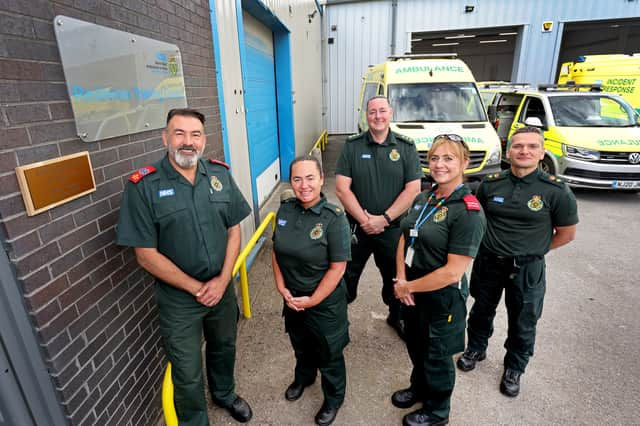North East Ambulance opens dedicated training centre in Washington to help crews prepare for complex emergencies
and live on Freeview channel 276
Life-saving ambulance crews now have a new dedicated facility in Sunderland to help them prepare for complex emergency situations.
The North East Ambulance Service has opened its Resilience Training Centre in Washington.
Advertisement
Hide AdAdvertisement
Hide Ad

Bosses say the dedicated Emergency Preparedness, Resilience and Response (EPRR) training facility will allow Specialist Operations Response Team (SORT) Operatives to receive specialist training for more complex emergencies.
EPRR focuses upon the planning and health response to a wide range of incidents and emergencies to ensure that the NHS can respond to major incidents effectively.
The EPRR arrangements include delivering specialist training to staff to respond to a major or complex incident such as marauding terrorist attacks and chemical, biological, radiological and nuclear (CBRN) incidents.
The type of training delivered in the Resilience Training Centre will incluthe de training for the Specialist Operations Response Team (SORT). SORT trained staff are drawn from our dedicated teams of operational Paramedics, Clinical Care Assistants and other emergency responders across the Trust. Staff who complete this role are all volunteers and receive annual training across six days to complete their training.
Advertisement
Hide AdAdvertisement
Hide AdThe Resilience Training Centre will deliver ongoing training for our Strategic, Tactical and Operational Commanders ensuring that they will have the skills, knowledge and confidence to manage a wide range of incidents. This includes regular fitness assessments, personal protective equipment (PPE), reflective practice, clinical training in hazardous areas and a programme of continued professional development.
Deputy Head of EPRR, Donna Hay, said: “The new resilience training centre provides specialist dedicated facilities to ensure we can deliver high quality and realistic training for our staff for major incidents such as terrorist attacks or chemical, biological, radiological and nuclear (CBRN) incidents.
“Prepare our teams for the challenging circumstances they might experience as part of their role helps to ensure that they are ready to provide their very best response to patients, if and when those incidents occur, in collaboration with our other partners in the emergency services.”
Comment Guidelines
National World encourages reader discussion on our stories. User feedback, insights and back-and-forth exchanges add a rich layer of context to reporting. Please review our Community Guidelines before commenting.